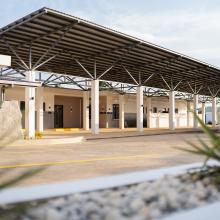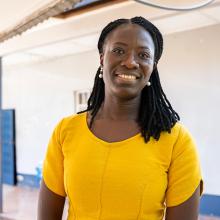Maternal Center of Excellence

Sierra Leone previously had one of the highest maternal mortality rates in the world—an injustice the Ministry of Health and PIH-SL are working tirelessly to address. In a bold step toward ending preventable maternal deaths, the Paul E. Farmer Maternal Center of Excellence (MCOE)—a brand-new clinical facility—will open in February 2026.
Our Impact
The MCOE is a state-of-the-art facility for quality care delivery and a model for training the next generation of health care workers in a rural setting.
-
120beds
across four modern buildings
-
1stfacility
with a piped medical gas system outside of Freetown
-
3operating theaters
inside the modern surgical suite
Advancing Maternal and Newborn Health
The MCOE is a state-of-the-art facility for quality care delivery, innovation, and a model for training the next generation of health care workers in a rural setting. In partnership with the Ministry of Health (MOH) and Build Health International (BHI), who are leading the construction, PIH is working to ensure high-quality maternal and newborn health care is more accessible in Sierra Leone. As an extension of Koidu Government Hospital (KGH) in Kono District, it will dramatically expand the current 48-bed maternal ward and special care baby unit. The Birthing Center sits at the heart of the MCOE. This building will be the entry point for all mothers and babies admitted to the facility. It has two major operating theaters and one minor procedure room to attend to all critical cases. The MCOE is one of the few hospitals in Sierra Leone with cutting-edge biomedical equipment as well as wall-piped oxygen thanks to the incredible work of BHI installing the medical gas systems throughout the Birthing Center and South Ward.
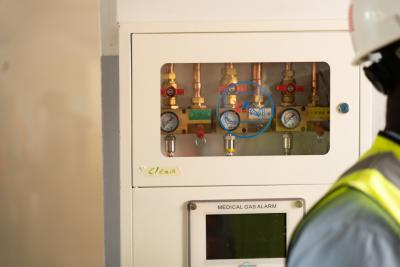
Wall-piped oxygen will be provided directly to patient beds.
Chiara Herold / PIH
The Services
The South Ward will admit and provide care to all critically ill and post-operative mothers. Hand in hand with the Birthing Center, staff across both wards will ensure that no mother or baby dies from a preventable cause. The North Ward will provide care for pregnant women and new mothers who had normal vaginal labor and deliveries without major complications. Outpatient services will support women throughout all steps of their reproductive journey, from family planning services to routine antenatal and prenatal care, gynecology services, and lactation support.
Partnerships
Our strong partnership and collaboration with stakeholders at the national and local levels make the MCOE come to life. MOH and PIH have come together to create the MCOE National and Local Steering Committees. The committees are composed of members from PIH, MOH, and other government counterparts, as well as local authorities from Kono and the KGH management team. The national committees meet quarterly to discuss progress and take action on all critical activities. The Local Steering Committee meets monthly which allows PIH and BHI to connect with key community members, ensuring ownership of the implementation process and facilitating an effective feedback mechanism. Members have donated plants and trees to the MCOE, which have been placed in a nursery, growing while awaiting transplant. These plants will become part of the beautiful landscape planned for the hospital campus. We are incredibly proud of this deep community connection to the hospital, bringing people closer to the MCOE, one plant at a time.
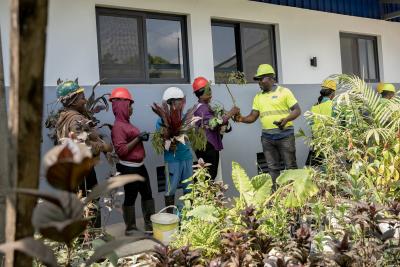
The local steering committee visits the Maternal Center of Excellence construction site and donates plants.
AbuBakarr Tappiah Sesay / PIH
Construction Crew
The MCOE construction crew is a success story in itself. For many of the women working at the site, it has become more than just a job, but rather a place to grow—both personally and professionally. Women like Yei Mansaray, a 29-year-old mother of five, learn livelihood skills that will stay with them long after the MCOE construction has been completed. Mansaray was hired as a laborer, promoted to a cleaner, and now works in the depot department, which is where all the tools and equipment are organized and stored. With no formal education, Mansaray never learned how to read or write—until her job in the depot.
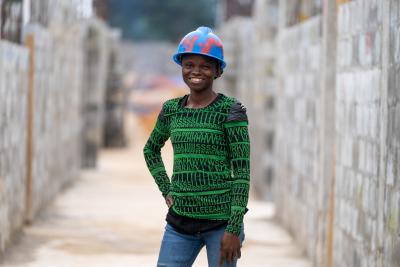
Yei Mansaray works in the depot department at the MCOE construction site.
Caitlin Kleiboer / PIH

